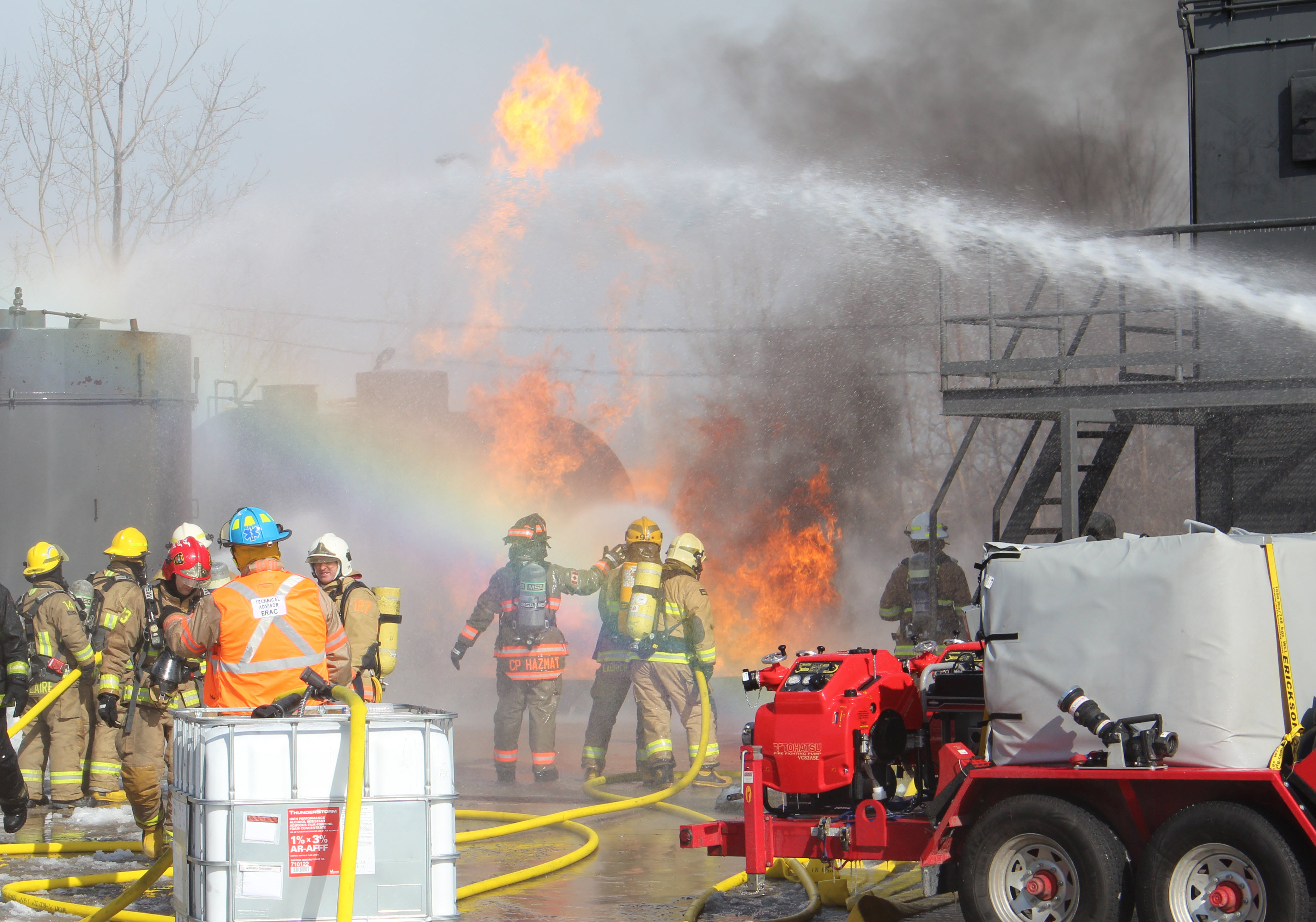It’s a cold February day near Quebec City as firefighters are hard at work battling a blaze, and Transport Canada is on the job. Orange flames leap into the air around a black rail tanker car as grim first responders point their hoses at the fire.
But, this isn’t a scene from a disaster movie, it’s real-life training organized by Transport Canada for firefighters who may one day have to deal with a real accident in their hometowns.
Rail incidents involving flammable liquids can deteriorate quickly. An effective response needs an entire team of highly-trained first responders and experts. That’s why TC helped organize two full-scale training exercises to help firefighters get the best preparation for the worst situations.
The first one, sporting the fiery code name “Vulcan”, took place last year in British Columbia. The second, “Athéna”, was held at the Institut maritime du Québec in Lévis in February 2017, and involved fire departments from small communities around the area.
To design and deliver the training, specialists from CANUTEC, Transport Canada’s Transport Emergency Centre, and from the department’s Emergency Response Assistance Plan program, worked with experts from the rail and petroleum industry and other related fields.
CANUTEC is a national advisory service that offers 24/7 advice and support to responders handling dangerous goods emergencies. The centre is staffed by scientists specializing in chemistry or related fields and trained in emergency response. Every year, CANUTEC deals with approximately 1,000 emergency situations and handles over 25,000 telephone calls.
Vulcan and Athéna included online training, classroom activities, practical scenarios and field simulations. Participants learned about the risks involved with flammable liquids, potential physical hazards on a derailment site, and what steps to follow when they are called to an incident. They were also taught about industry best practices and the different tactics and strategies they can use.
A key component was promoting teamwork and making sure everyone understood their role. When this many players are involved, coordination is a must for timely, safe incident resolution.
For Vulcan, a derailment site was available. With Athéna, organizers had to innovate. A virtual prototype was developed to simulate a derailment involving flammable liquids. The prototype provided a complete, realistic view of a site, including smoke and fire. An outdoor prop at the Institut was also modified to deliver a more realistic experience.
Participants’ knowledge was tested before and after the exercise. Feedback will be essential for determining how helpful and effective the exercise was. The eventual goal is to develop a national training program for first responders.
Just like putting out a fire, success wouldn’t be possible without partnership and teamwork. Transport Canada worked closely with Defence Research and Development Canada, and is grateful to the following organizations for providing staff or equipment for Exercise Athéna:
- Canadian Pacific
- Canadian National
- École nationale des pompiers du Québec
- Emergency Response Assistance Canada (ERAC)
- Genesee & Wyoming (G&W)
- Institut maritime du Québec (French only)
- International Safety Research
- MD-UN
- Railway Association of Canada
- Suncor Energy
- Williams Fire and Hazard Control
Transport Canada is on duty 24 hours a day, making a real contribution and difference in the lives of Canadians.
